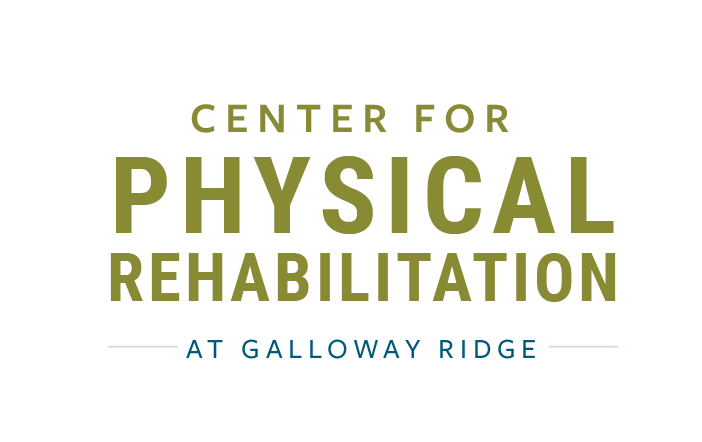Why Speech Therapy Matters
Communication is one of the most powerful tools we have, and when it feels out of reach, life can become frustrating or isolating.
Speech therapy helps people of all ages—children learning their first words, adults recovering after a stroke, or seniors working on memory and clarity—find confidence in their voice. Speech therapy goes beyond speaking clearly to help people connect with others in meaningful ways.
Whether you’re exploring speech therapy at home with simple exercises or considering professional speech and language therapy for adults, this supportive practice opens the door to better communication and a higher quality of life.
What Is Speech Therapy?
At its core, speech therapy is a specialized type of care that helps people improve how they communicate and understand language.
A speech-language pathologist (often called an SLP) guides individuals through techniques and speech therapy exercises designed to strengthen speech, language, and even swallowing skills.
Who Can Benefit From Speech Therapy?
Speech therapy can benefit many different people. For children, it may mean working through speech delays or articulation challenges.
For adults, it could be rebuilding communication after a stroke, managing the effects of conditions like Parkinson’s disease, or even working on accent modification for clearer expression.
There’s also speech and language therapy for adults who want to improve social communication skills, confidence in conversation, or professional speaking abilities.
How is Speech Therapy Offered?
Today, speech therapy can happen in a variety of ways—traditional in-person sessions, convenient online programs, or even a hybrid of both.
This flexibility ensures that therapy can fit into different lifestyles and needs while offering consistent support toward communication goals.
Common Speech Therapy Goals
Every person’s needs are unique, so speech therapy goals are tailored to fit the individual.
For children, goals may focus on mastering specific sounds, improving clarity, or building the confidence to speak in class.
For adults, therapy might target regaining speech after an illness or injury, sharpening professional communication, or strengthening memory and word recall.
Language Goals for Speech Therapy
Common language goals for speech therapy include:
- Expanding vocabulary
- Improving sentence structure
- Enhancing fluency in conversation.
For some, it’s about boosting confidence to speak in social settings, while others may focus on pronunciation and pacing.
No matter the age or stage, these goals are often created in partnership with a speech therapist but can be supported outside of sessions, too. With practice at home, consistent effort can add up to lasting communication improvements.
What Happens in a Speech Therapy Session?
A typical speech therapy session is designed to be both structured and supportive. It often begins with a quick check-in, where the therapist reviews progress and sets goals for the day.
From there, clients engage in guided speech therapy exercises that target their specific needs—such as practicing sounds, improving fluency, or strengthening comprehension.
Therapists use a wide variety of speech therapy activities to keep things engaging. For example, flashcards and storytelling can help build vocabulary, while pronunciation drills sharpen clarity.
For children, fun and interactive speech therapy games are often included, making practice feel more like play. Adults may work through real-life conversation scenarios to build confidence.
Each session ends with feedback and tips for practice at home. This reinforces skills and encourages steady progress outside of therapy.
Tools and Resources That Support Therapy
Speech therapy doesn’t end when the session is over—there are many tools that can make practice easier and more engaging.
Today, there are a variety of speech language therapy apps that provide exercises, games, and progress tracking right at your fingertips. These can be especially helpful for daily practice and keeping therapy fun.
Beyond technology, one of the most powerful tools is support from family or partners. Practicing speech therapy at home—whether through reading together, casual conversation, or guided exercises—helps reinforce skills learned in therapy sessions.
While apps and home practice are excellent resources, it’s important to remember that they work best alongside professional guidance. They are not a replacement for expert support.
The combination of professional insight from a speech therapist and consistent practice creates the strongest results.
Understanding the Cost of Speech Therapy
One of the most common questions people have when considering therapy is how much it will cost. The answer depends on several factors, including where you live, how often sessions are needed, and whether you choose in-person or online therapy.
While costs can vary, knowing what to expect can help you plan and feel more confident about starting the process.
How Much Does Speech Therapy Cost?
The speech therapy cost can range widely. Location plays a big role—urban areas may be more expensive than smaller towns.
The therapist’s level of training and experience also influences pricing, as does the length and frequency of sessions.
Some clinics offer packages or reduced rates for telehealth services, which can be a more affordable option.
Asking about payment plans or sliding scales can also make therapy more accessible.
Does Insurance Cover Speech Therapy?
The answer depends on your plan. Some insurance policies cover therapy when it’s medically necessary, such as after a stroke or injury, while others may have limitations.
It’s important to check your benefits, ask about coverage criteria, and explore alternative funding options if needed.
A therapist’s office can often guide you through this process to help maximize your benefits.
Practicing Speech Therapy at Home
Progress happens faster when therapy continues beyond the clinic. Families and caregivers can make a big difference by supporting speech therapy at home in simple, everyday ways.
Reading aloud together, practicing specific sounds, or engaging in short conversations are effective speech therapy exercises that fit easily into daily routines.
To keep practice fun and motivating, try incorporating speech therapy games or interactive activities that turn learning into play. For example, board games, storytelling prompts, or even guessing games can encourage speech practice without feeling like homework.
These small but consistent efforts not only reinforce skills learned during sessions but also help build confidence in real-world communication.
Why Speech Therapy Is Worth It
The benefits of speech therapy go far beyond clearer speech. It helps people connect more easily with others, strengthen relationships, and build confidence in everyday life.
For adults, speech and language therapy can mean regaining independence after an illness or improving professional communication skills.
For children, it can create stronger foundations for learning and social interaction.
No matter the age, achieving personalized speech therapy goals opens the door to better opportunities and quality of life. Taking the step to begin therapy is an investment in communication—and in yourself.
Conclusion
Speech therapy is a powerful tool for improving communication, confidence, and everyday connections.
Whether you’re just beginning the journey or looking for ways to keep progress going, small steps like practicing speech therapy at home can make a big difference.
Most importantly, remember that progress is possible, and starting therapy is a step toward stronger, more meaningful communication.
Ready for a Healthier Lifestyle? Contact the Center for Physical Rehabilitation at Galloway Ridge Today!
At Galloway Ridge, we’re here to support you every step of the way with personalized care that fits your needs. If you have questions about physical, occupational, or speech therapy services—or you’re ready to schedule your first visit—we’re here to help you get started with confidence.
For more information about speech therapy, give us a call at (919) 545-2633. To learn more about how you can improve your health and lifestyle, check out our blog.

